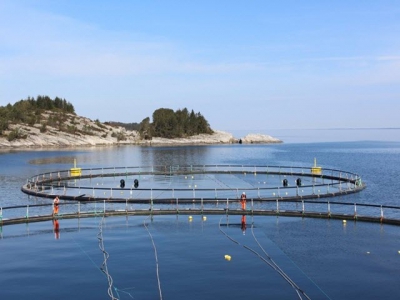EFSA reviews environmental risk from hiking levels of vitamin D3 in fish feed

EFSA says it has received new data from the Norwegian Food Safety Authority (NFSA) to help it assess environmental risk from supplementing feed for salmonids with a higher level of vitamin D3.
The update was posted on the Authority's Register of Questions portal.
In an opinion published in January last year, the European Food Safety Authority (EFSA) assessed the impact for target animals and consumers but not the safety for the aquatic compartment if the level of vitamin D3 in feed for salmonids was increased to the maximum level proposed by NFSA – 1.5mg vitamin D3/kg compound feed.
An EU Standing Committee of member states discussed the issue in July 2017, and the European Commission subsequently decided to allow the Norwegian agency to submit extra information to the Parma based food and feed risk assessor in relation to the environmental safety of such a dosage level.
EFSA said it will perform the assessment of that data by 30 November 2018.
Background
During 2012–2014, the EFSA Panel on Additives and Products or Substances used in Animal Feed (FEEDAP) issued three opinions on the safety and efficacy of vitamin D3 for all animal species and concluded that no safety concern was identified for the use of vitamin D3 for fish at the maximum authorized content of 0.075 mg/kg feed.
However, NFSA, on the basis that the increasing use of plant-based feed materials in aquaculture feeds could induce a decrease in vitamin D3 content in compound feed, made data available to the Commission related to studies on the safety of vitamin D3 for fish and consumers at substantially higher levels (1.5 mg/kg feed) than those proposed by EFSA. The EC then asked EFSA to review that information to estimate if it would be possible to increase the current levels of vitamin D3 in feed for fish.
The Panel found there was no evidence that the current total maximum EU content of vitamin D3 may cause any appreciable risk of deficiency in salmonids. It said the possible contribution of vitamin D2 in plant-based ingredients to the total vitamin D intake was considered to be low, although it could not be reliably estimated.
The feed experts also concluded the level of 1.5 mg vitamin D3/kg compound feed was safe for salmonids with a margin of safety of at least 10. Though, for other fish, it said there was insufficient data available to conclude on the safety of such as supplemental dosage.
Although the assessment of safety for the consumer is impaired by uncertainties concerning the transfer of vitamin D3 from feed to fish flesh, the panel said an increase of total vitamin D content in fish feeds up to 1.5 mg/kg feed would not lead the tolerable upper intake level to be exceeded even in high level consumers.
Salmon feed research
Recommendations on vitamin and mineral supplements in the feed for Atlantic salmon need updating, said NIFES in October 2017.
Salmon feed formulations have changed dramatically in the last 10 to 15 years – previously they were composed of fishmeal and fish oil, but most commercial salmon feeds now contain more than 70% plant ingredients, according to Norway's National Institute of Nutrition and Seafood Research (NIFES) data.
Plants contain anti-nutrients that can cause the fish to absorb less of the nutrients in the feed; salmon fed plant based diets, therefore, need different quantities of vitamins and minerals, Kristin Hamre, senior scientist, NIFES told this publication previously.
She said that even if the plants contain these nutrients, the fish are unable to absorb them to the same extent as they would from marine feeds. Plant materials contain lower levels of some nutrients than fishmeal and fish oil do, she added.
Related news
 Algae meals may support growth, body condition in carnivorous fish
Algae meals may support growth, body condition in carnivorous fish Swapping algae meal for portions of fishmeal, fish oil and plant proteins may provide similar growth performance and body condition in carnivorous fish
 Insect meal, oil show potential for partial fishmeal, oil replacement
Insect meal, oil show potential for partial fishmeal, oil replacement Black soldier fly larvae-based oil and meal may boost trout production when fishmeal and fish oil are partially replaced, say researchers.
 US RAS organization calls for feed research, alternatives to ocean-based fish farming
US RAS organization calls for feed research, alternatives to ocean-based fish farming Feed innovation and supporting the use of recirculating or land-based fish farming are focus areas for the Recirculating Farms Coalition says non-profit founder